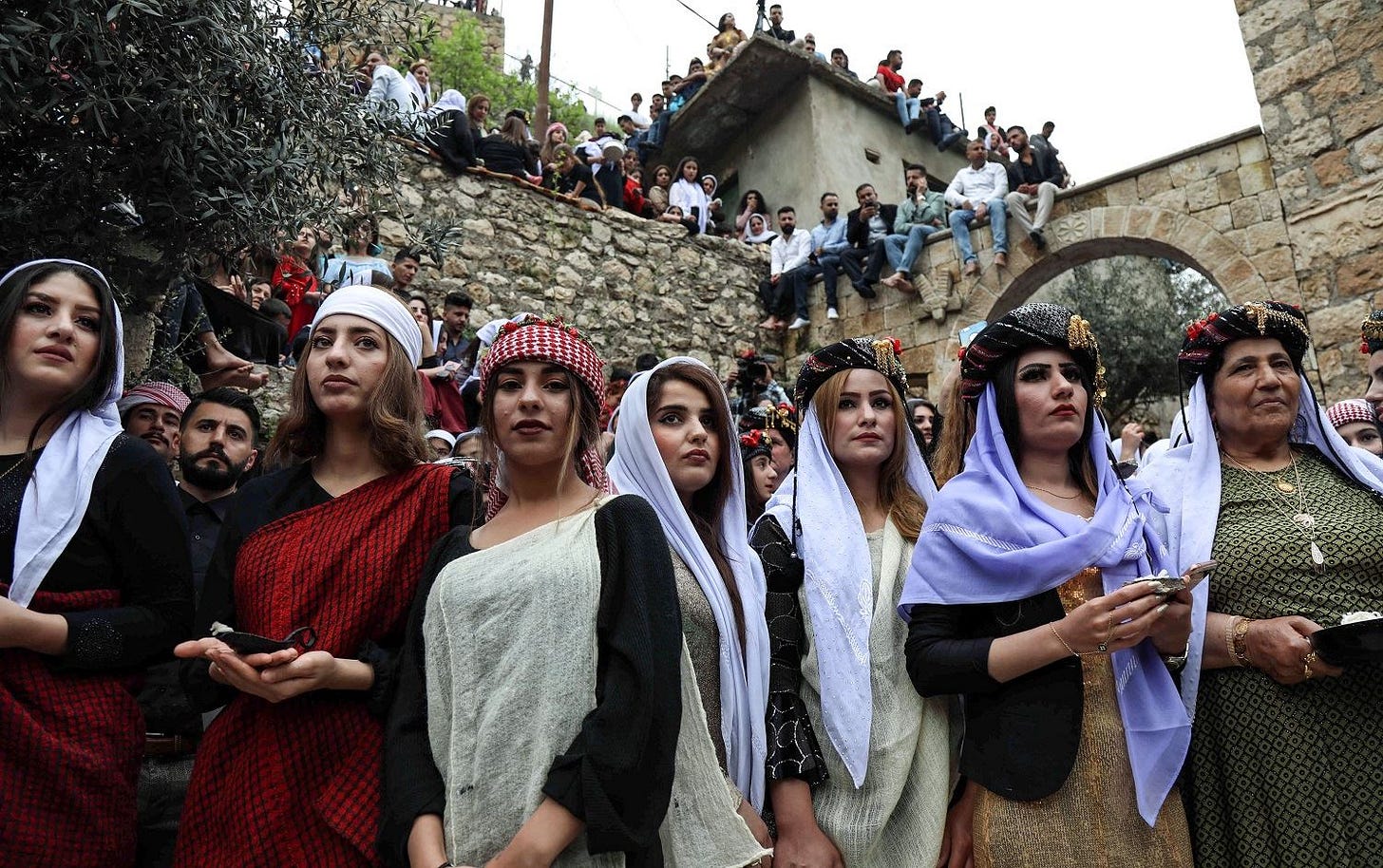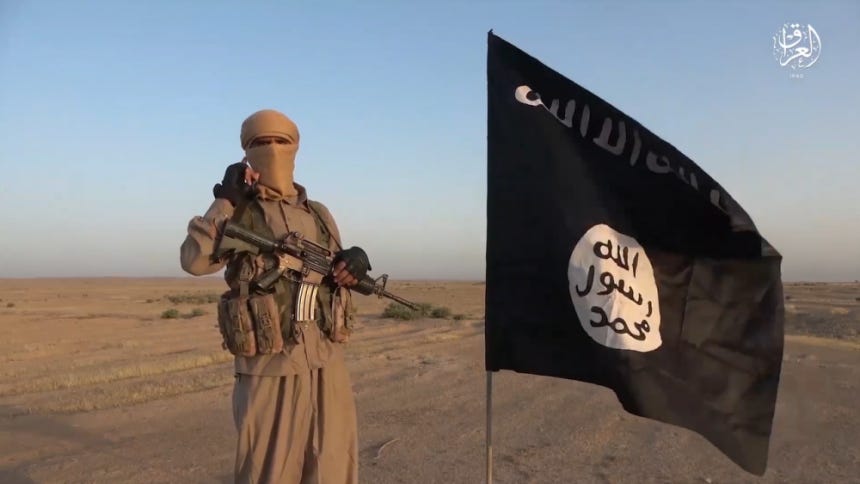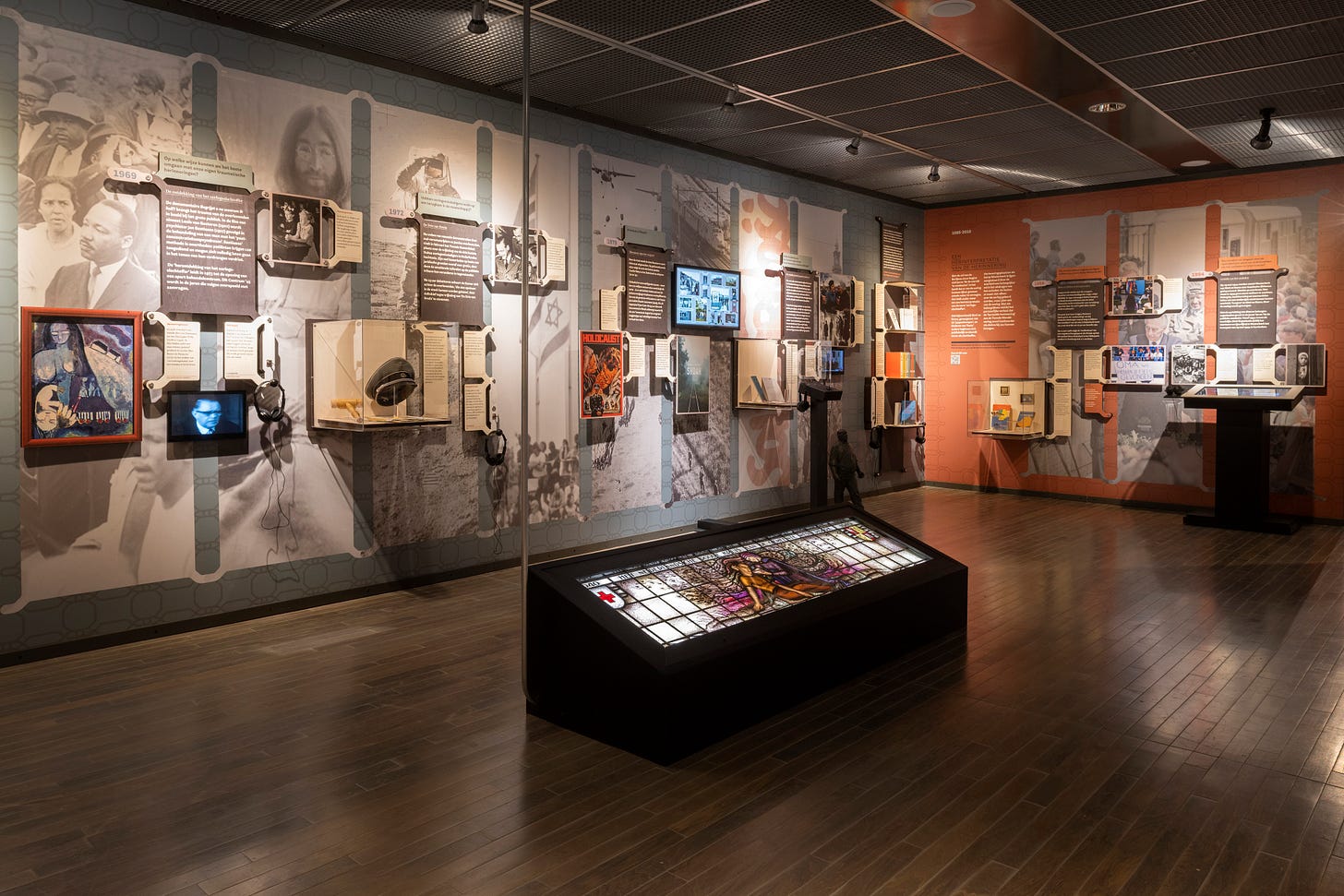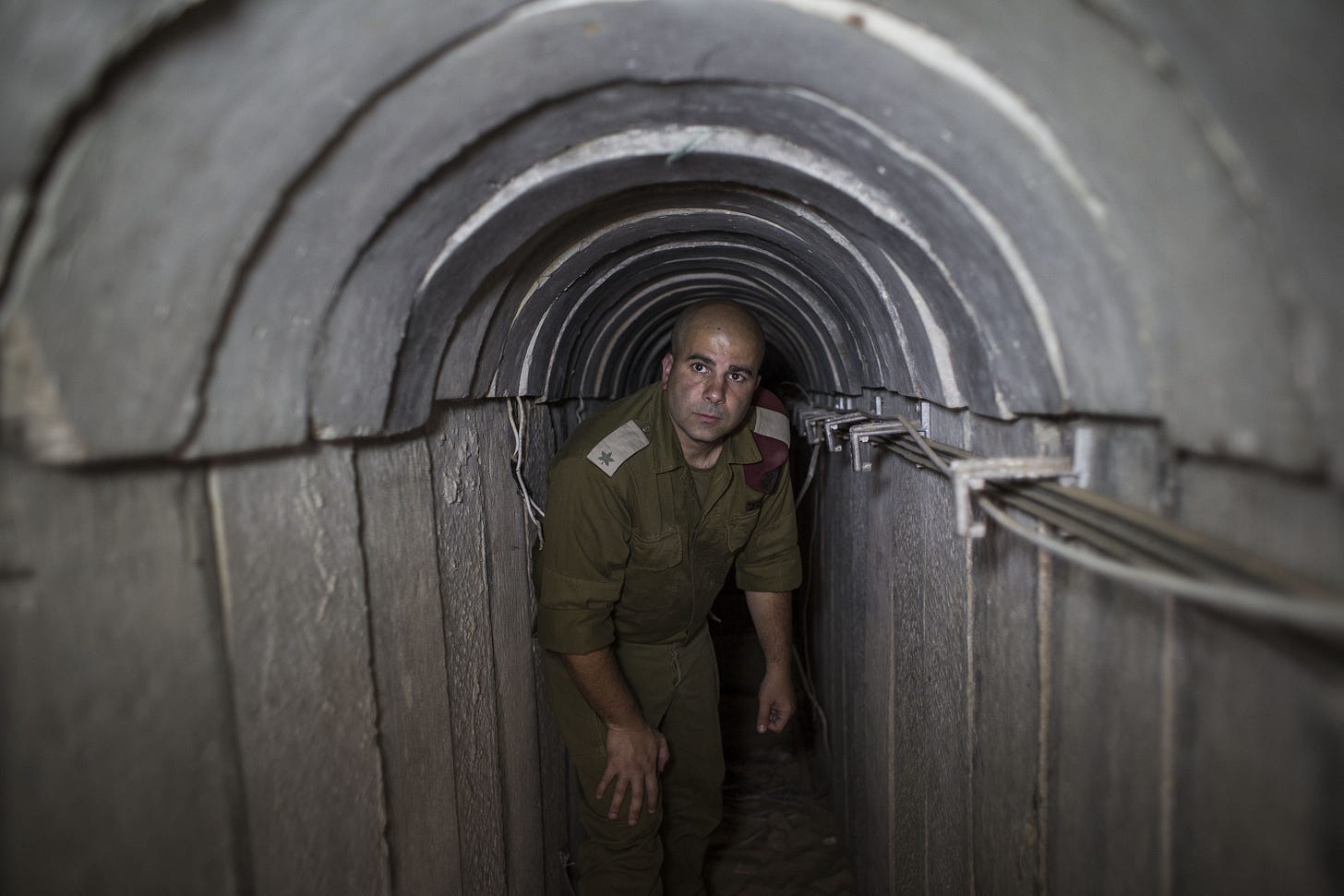After ISIS: Yazidis Still Face Threat in the Middle East and in the West
In light of the current war between Israel and Hamas, which we are witnessing today, the world seems to have lost interest in the fate of the Yazidis and moved on.
On October 18th the Human Rights Joint Committee of the British Parliament, with representatives from both the House of Commons and the House of Lords, held a meeting on accountability for crimes by ISIS (DAESH). The main question was whether the United Kingdom government’s response was compliant with human rights obligations under national and international law. Also, the question was raised about what the legal framework is for the prosecution of returned ISIS fighters. While many Western countries such as the United Kingdom, Canada, The Netherlands, Belgium, and Germany, struggle with the question of whether they should repatriate ISIS members back into their societies, life for their victims, the Yazidis, in the aftermath of genocide, slavery and human trafficking, has been less highlighted in the news. Especially in light of the current war between Israel and Hamas, which we are witnessing today, the world seems to have lost interest in the fate of the Yazidis and moved on.
In August of 2014, the Islamic State of Iraq and Syria (ISIS) started a genocidal campaign on the Yazidis; a religious minority group living in Syria and Iraq. Thousands of Yazidi men and boys were murdered, but also many elderly women. Young women and children were abducted, raped, forcibly married, and converted to Islam. Others were sold in slave markets or given as a gift to other men from countries such as Palestine, Saudi Arabia, Iraq, Egypt, and others. Although President Donald Trump declared in 2017 that ISIS was defeated, the jihadist group still has sleeper cells that have been actively involved in several attacks after its so-called defeat.
While the world has moved on and shifted its attention to other conflicts, for the Yazidis their pain and distress is still very much alive today. Murad Ismael, a Yazidi man from Iraq who is currently living in the United States, told me that the Yazidi community still needs to recover from all the violence it has experienced at the hands of ISIS and that many are traumatized for life. Apart from the traumatic experiences Murad spoke about, the problems the Yazidi community faces even today are far from solved. For example; there is still an estimated number of 3.000 women and girls missing who were abducted and sold on slavery markets by ISIS.

Women and girls
According to a report by Turkish Minute from October 27th, the Turkish Ministry of Family and Social Services handed over a kidnapped Yazidi girl to a family related to the terror group after she was freed from captivity in February 2021. Only after public outcry, was the girl then placed under state protection. Two Iraqi citizens have been questioned regarding the child’s abduction and holding her hostage.
Another recent story is that of Mariam (not her real name) who was only eight years old when ISIS took her captive. This young girl’s journey from captivity to freedom lasted nine years. Nine years of abduction, rape, violence, and injustice. When she was only ten years old, after being as she describes it, imprisoned for two years, she was forced to marry a 24-year-old Palestinian man. At age eleven, she gave birth to her first child, a baby boy, a year later she had another baby, a girl this time. Mariam now wants to remain in Palestine, after she lost so many of her close relatives, and raise her children there. Because she was abducted when she was only eight years old, it should come as no surprise that the current situation she is living in is the only one she really remembers to call ‘home.’
These are just two of the stories of Yazidi girls who have recently been found again, in August and October this year. They represent so many other women and girls who are still missing. When women are found again, the Yazidi community often has to pay money to the captors to free their sisters, wives, daughters, nieces, and cousins. See for example Khaled Taalou who has paid nearly 100,000 U.S. dollars to free ten of his family members. Nineteen of his relatives in total were captured by ISIS, he is still working to find and free the other members of his family.
While Yazidis are still desperately trying to find their loved ones, in The Netherlands a jihadist called Rachid Bouabid, said in a radio interview this weekend that he stands with his ‘brothers’, meaning the terror group ISIS, even, he said, when they rape women. Then, to the shock and horror of many listeners, Bouabid continued stating that in Islamic law this is not considered rape but the right of Muslims to distribute among themselves the spoils of war. Mind that in The Netherlands there are many Yazidi refugees who hear someone defend what happened to themselves and their community as a whole, who listened to this interview and felt unprotected and horrified by these words.
The Netherlands
On October 17th a Dutch Yazidi political scientist, Wahhab Hassoo, announced on 𝕏 (formerly known as Twitter) that his organization would stop all cooperation with the Dutch Council for Refugees (Vluchtelingenwerk) because research showed that apparently a former ISIS terrorist had been working for the Dutch Council of Refugees and in this capacity had been in close contact with former victims of the genocide. This former ISIS terrorist, a woman, had received a Statement of Conduct, clearing all obstacles that would have normally prevented her from being allowed to work there. After several members of the Dutch Parliament, de Tweede Kamer, asked how this could have happened and whether there were other terrorists who were given such a Statement of Conduct, it turned out this had been done in 22 cases. Hassoo, in his statement on 𝕏, said he felt humiliated.
Unfortunately, this was not the end of the story. For five years the young Yazidi man has been part of an annual Holocaust genocide remembrance program in former deportation camp ‘Westerbork’ together with Emmy Drop, a member of the Dutch Jewish community. Every year they both give a speech in which they share stories of genocide from the past and the present to honor and remember those who died but also to raise awareness. This year, the event was scheduled for October 29th, but they had to withdraw from speaking due to serious death threats Wahhab Hassoo had received. He was shocked that after fleeing the genocide of ISIS, this could happen to him in a free country such as The Netherlands. He wrote, “I never, really never thought I would experience this in the Netherlands, a painful reality. But it has to be that way now.”
Germany
Right now, Yazidi refugees in Germany face deportation, not necessarily to their countries of origin, but to mostly Eastern European countries such as Poland, Bulgaria, and Lithuania. Since those were the first countries they applied for asylum in, the rule is -according to the Dublin Agreement- that they have to wait for their cases to be brought to court there. However, in these countries, Yazidis and other refugees often face harsh treatment and therefore try to escape from these atrocities to other parts of Europe where they then are considered to be illegal aliens.
For example, according to a report by the International Red Cross from 2022, Yazidis are often placed with Iraqi Arab refugees who apparently film them while they are sleeping or taking a shower. This is also the experience of a Yazidi man living in Lithuania, Barjas Hazm, who I interviewed the same year:
“Many of us are actually imprisoned here in Lithuania. The government here does not recognize that we are being persecuted in Iraq and that we are victims of genocide. I myself have been in prison for over ten months now, our freedom is very much restricted here. The other refugees intimidate us and make insulting comments regarding our Yazidi religion, they say we worship the Devil.”
I interviewed Wahhab Hassoo this week who explained:
“At the moment we, our organization The Netherlands Helps Yazidis, is sheltering twelve Yazidi refugees. The Red Cross is right about the dire circumstances many of us are facing in Eastern Europe, but that is not all. People smugglers have also forced us to carry drugs for them, which as you can understand can bring new problems for Yazidis. Traumatized people after reaching what they expected to be a safe haven, are put in a cell and forced to sign a paper stating that they agree with deportation back to Syria or Iraq.
This is due to the fact that many Western countries have not recognized the fact that Yazidis suffered a genocide, even when sometimes parliaments have done so, the governments, for example, The Netherlands, never acknowledged the genocide by ISIS. When governments would recognize genocide they would have to financially compensate the victims, and not many countries are willing to do that, although some do feel morally obliged to.
Not only Western countries, but the governments of both Syria and Iraq up until today have never acknowledged that ISIS committed genocide on our people within their borders. Sinjar (Syria) where many Yazidis come from, is in complete chaos now. Hamas and Lebanon are using tunnels in the region for weapon transport. ISIS women are being repatriated, but we, the victims of their crimes, are told to leave.”
Iraq and Syria
After ISIS lost most of its power in Syria and Iraq, other countries and militias have taken over control, specifically in the north of Syria. There have been many accounts since, for example, Amnesty International, stating that these Turkey-backed militias are committing war crimes and violating human rights such as murder, rape, human trafficking, robbery and torture. But that is not all, in May this year, I attended a press briefing organized by the Sinjar Academy for which Mr. Murad Ismael works, and the Free Yazidi International organization, in which Yazidis from Iraq shared their experiences of an increase of intimidation and hate speech against their community in the Kurdish part of the country where they sought refuge from ISIS during the genocide. Some imams apparently stoked fire during their preaches stating, just as ISIS did, that Yazidis are Devil worshippers and that their religion is not real. According to Pari Ibrahim from Free Yazidi International, the Iraqi government must do more to protect the already vulnerable Yazidi community and screen people who want to enter the region since it is the only safe place the Yazidis in Iraq now have.
Taking into account all of the above, one can only imagine what will happen when Yazidi refugees would indeed be forced to return to Iraq and Syria where they can also find themselves in the middle of the armed conflict the Turkish government is fighting with the Kurdish PKK as Miss Pari Ibrahim shared with me in an interview in 2022:
“Many of our community still live in refugee camps, others feel unsafe due to the militias who are trying to take power or by Turkish bombings. People are depressed, some have lost all hope and even took their own lives.”
Now, with the eyes of the entire world on Hamas and Israel, fear is that the world will forget about an already vulnerable and marginalized community that has not yet recovered from the last genocidal campaign and now has to fear that renewed hostilities could again end up in an outburst of violent attacks.








